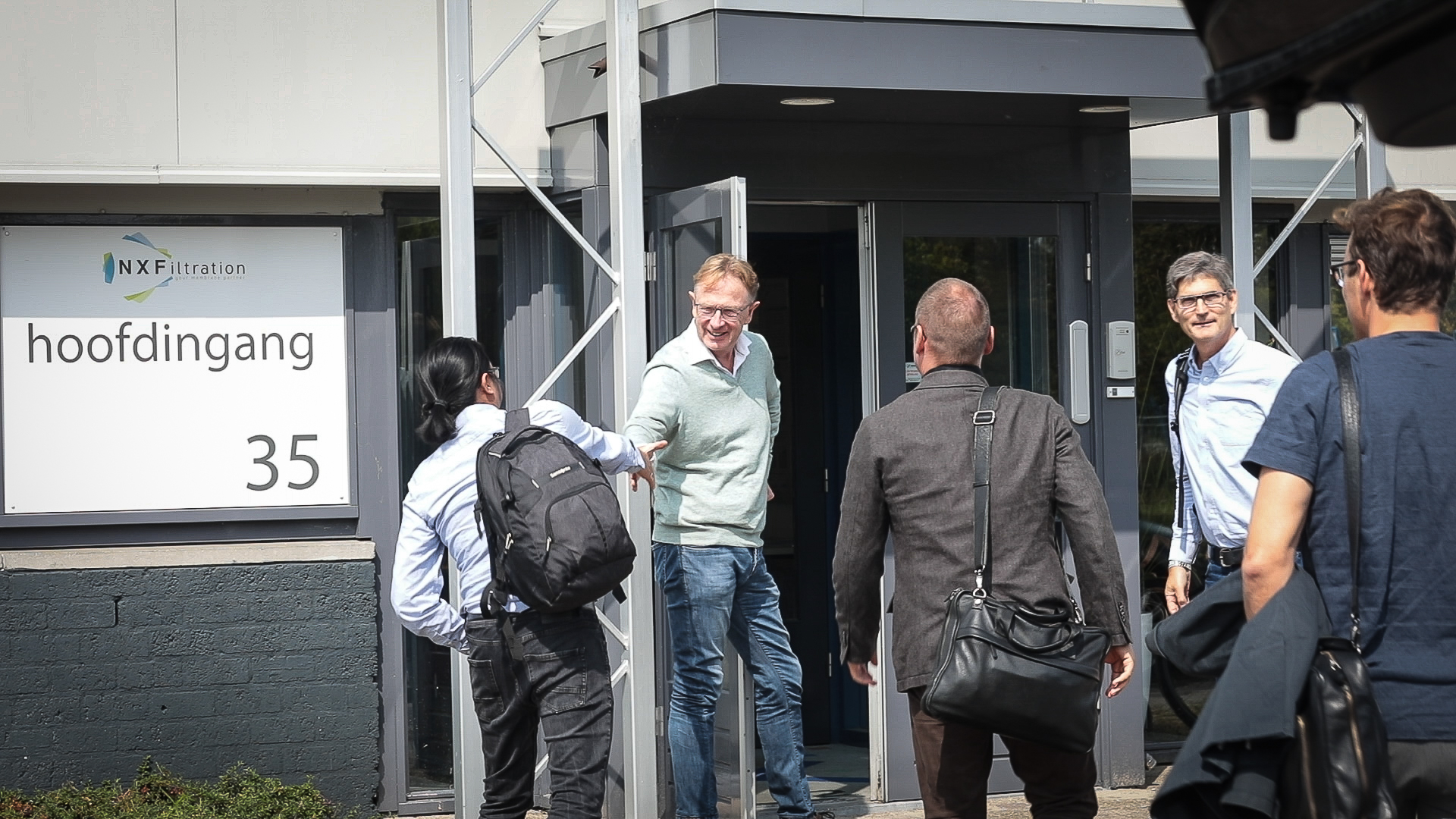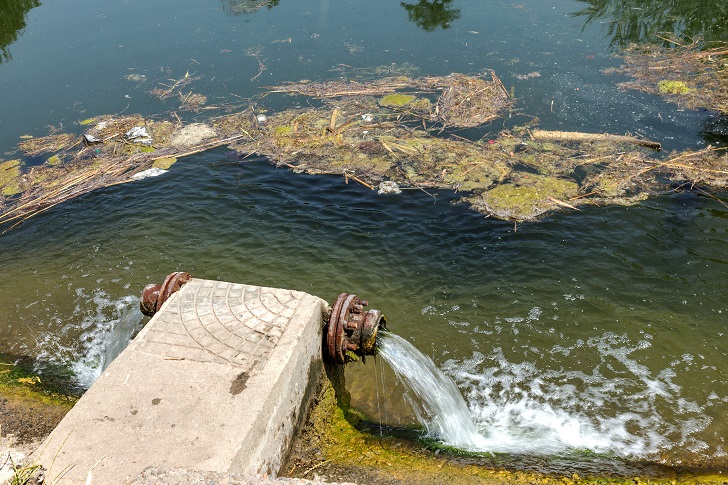

When a Dutch filtration specialist used the HelloScience platform to submit his ideas about integrating enzymes into membrane technology, he caught the attention of water and biotech experts. The resulting collaboration could see a sustainable solution to remove micro-pollutants from water streams.
Erik Roesink is general manager at NX Filtration, a Dutch company that specialises in membrane technology. He had responded to a request for water-related ideas to be submitted to HelloScience – an online collaboration platform for sharing ideas. The idea attracted the attention of the two Danish companies behind HelloScience and after discussions with a number of ideas' contributors and a careful review, Erik’s idea was selected as the winner of the HelloScience Innovation Award.
The idea had also attracted the interest of biotech experts, Novozymes and water technology specialists, Grundfos. Both companies saw the potential for radical new advances in the field by combining solutions from NX Filtration, Novozymes and Grundfos.
HelloScience HelloScience was founded by a small, cross-disciplinary team from Novozymes in September 2017. The original idea behind HelloScience was to create a website community where Novozymes and its partners could accelerate promising ideas which could contribute to achieving the UN’s sustainable development goals. Grundfos joined HelloScience in December 2017 and together the two companies agreed to put a strong initial focus on sustainable development goal 6, which targets the global challenges related to water.
HelloScience acts as a place for knowledge sharing, access to technology, mentorship, microgrants and partnership opportunities. It provides everything that is needed to turn the best ideas into solutions. Novozymes has high ambitions for the future of HelloScience and hopes it will become the preferred place for people with good ideas to be recognised and for those ideas to come to fruition.
It was the HelloScience platform that provided the initial point of contact between NX Filtration, Novozymes, and Grundfos. Erik Roesink’s idea, which was in its early stages, created a lot of interest from Novozymes and Grundfos and the two companies made contact with him to identify possible ways they could collaborate and take his ideas forward.
Daniel Cardinali, head of the innovation office at Novozymes, said: “It’s a co-development partnership which started from an open innovation platform, so this project is true to the spirit of HelloScience. Novozymes brings enzymatic expertise and solutions, NX Filtration brings specialist membrane technology and Grundfos supports with its extensive knowledge and experience of water treatment systems. All of this combined to accelerate the development and deployment of a potentially radical innovation in the field.”
Erik found working with Novozymes and Grundfos interesting because he felt it completed the value chain for him. “We are privileged to be part of this initiative,” he said. “Our nanofiltration technology is already capable of selectively removing small organic compounds from fresh water sources, which enables new applications such as the removal of pharmaceutical residues, pesticides and other contaminants. Combining our technology with the expertise of Novozymes and Grundfos enables this collaboration to create something much more sustainable, which can truly make a difference.”
Fighting micro-pollutants NX Filtration creates nanofiltration membranes that can reject micro-pollutants. However, when filtration occurs, it creates two streams, one of which contains a high concentration of micro-pollutants. The first stream is a filtrate/permeate which is free of micro-pollutants and can be used for industrial applications and drinking water.
The other stream, the concentrate, contains a high concentration of micro-pollutants and this, Erik Roesink says, is where the enzymes can be used. “The idea is to use enzymes here to enhance the modification of these toxic compounds and so create a zero-liquid-discharge water treatment concept. The enzymes target the micro-pollutant to either break it down or to alter the pollutant’s properties so that it does not pass through the filter and so helps clean the water.”
Testing and validation
While NX Filtration delivers the membrane modules and Novozymes delivers the enzyme technology and expertise, the testing phase will be driven by Grundfos, a company which has the advantage of many years of experience within the water industry and knowledge of water treatment processes. Henrik Juul Nielsen, senior manager, Future Options, at Grundfos said: “Grundfos’ experience with water treatment solutions is used to design the system in the most effective way in close collaboration with NX Filtration and Novozymes.”
He added: “Grundfos is building a demonstration plant where the three companies are working to validate the effect of the enzymes and looking in detail at how they could remove micro-pollutants from contaminated water. Grundfos is currently exploring the opportunities available within its partnership with NX Filtration and Novozymes and is working with them to test the hypotheses.” Although the company has not yet decided whether it will pursue this solution commercially, Mr. Nielsen said it is determined to find better water treatment solutions and bring them forward to make a significant impact on global water challenges.
Exploring possibilities
The project is still at an exploratory stage and part of NX Filtration’s input is its knowledge of the removal of micro-pollutants from municipal effluent. The company is looking at questions such as, what are the typical compounds in this situation, what is the concentration and what might we expect from the enzymes working in this situation? “The first laboratory tests with enzymes and micropollutants are completed and look very promising,” said Erik Roesink. “Early next year, in collaboration with Grundfos, we will start pilot tests to evaluate the combination of nanofiltration membranes and enzymes at a wastewater plant in Denmark.” Once the results from the first pilot are available, there could be a larger scale installation for treating municipal effluent in operation by the end of 2019.
Promising technology
Erik Roesink says that one of the big advantages of the NX Filtration membranes is their high retention of micro-pollutants, but also the relatively high passage of minerals and salts. This implies a relatively low energy consumption and a consequently low operational cost. While the three companies first want to focus on the removal of micro-pollutants from municipal and industrial wastewater streams, he believes the process has enormous potential for drinking water production worldwide. “The presence of micro-pollutants is everywhere in the world and this means that the integration of enzymes with nanofiltration technology could make a big difference. NX Filtration is already working on applying it to drinking water at a household level as well as in larger schemes for more centralised drinking water production.”
Daniel Cardinali of Novozymes agrees with Erik Roesink and reiterated the importance of working together to achieve clean water. “The UN has made universal access to water and sanitation by 2030 one of its Sustainable Development Goals. This is the scope for the open innovation collaboration between NX Filtration, Grundfos and Novozymes. We are excited about being a part of this partnership to solve one of the biggest global challenges of our time. With water and sanitation being one of the biggest problems our planet faces, it must also be one the biggest long-term opportunities for the right solutions.”






